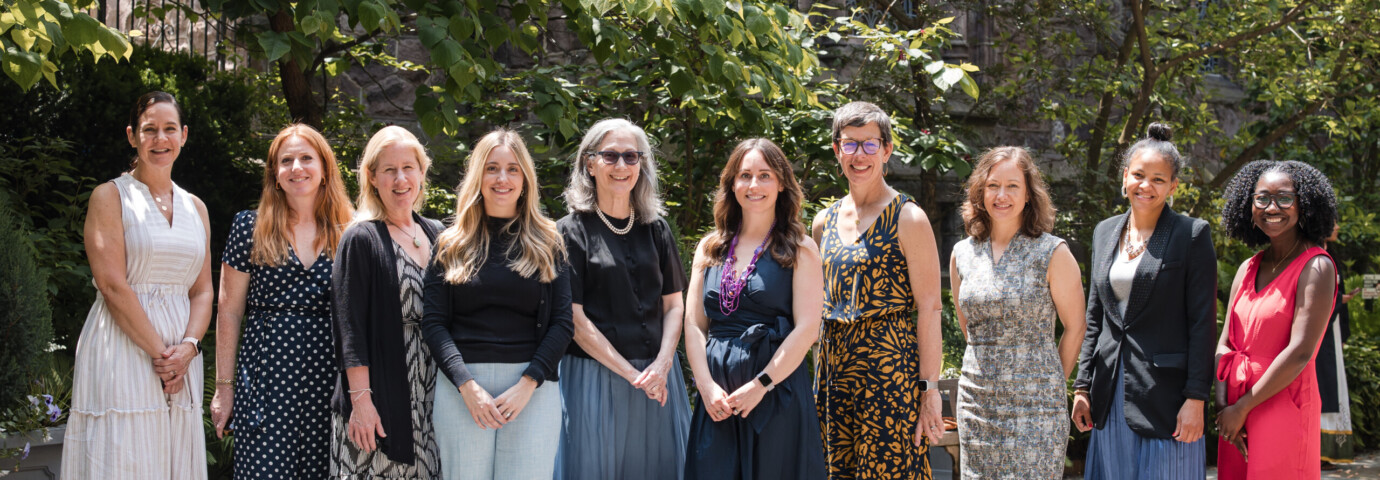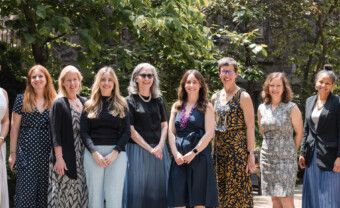

Faculty Spotlight
The Penn MPH program is led by a distinguished, interdisciplinary faculty who are renowned leaders and innovators in their respective fields. With backgrounds ranging from epidemiology and biostatistics to community health and climate change to global health and policy, the faculty provide students with unparalleled opportunities for learning and mentorship. Their real-world expertise shape the curriculum, ensuring that students are equipped with the skills to address the complex public health challenges of today and the tools to engage with communities and organizations worldwide.
Highlighting Their Work
Below, we celebrate the exceptional work and contributions of the Penn MPH faculty. Each spotlight highlights the passions, innovative projects, and impactful leadership of our esteemed professors. Our faculty members are making a difference both in the classroom and in communities. They bring their expertise and passion to the classroom to spearhead a dynamic and inspiring learning environment. These spotlights offer a glimpse into what they bring to the table, personally and professionally. Read more about their latest achievements and discover how their work is shaping the future of public health!
Cheryl Bettigole, MD, MPH
New MPH Teaching FacultyFaculty Spotlight
Anita Stief, MPH, RD, LDN
MPH Education CoordinatorAs a Registered Dietitian, I’ve spent most of my career working in community nutrition. Along the way, I’ve had the chance to wear many hats, from working with the Women, Infants, and Children Program and the Supplemental Nutrition Assistance Program-Education to serving as an in-store retail dietitian. Currently, I also teach Introduction to Nutrition at the Community College of Philadelphia, which allows me to share my passion for nutrition education with a diverse group of students.
One of the things I love most about having an MPH is the flexibility to apply your skills and knowledge across so many different sectors. My passion lies in providing nutrition education, offering technical assistance, and implementing policy, systems, and environmental changes to increase nutrition security and improve healthy food access, all with the goal of improving health outcomes in communities.
In Summer 2024, I had the opportunity to co-teach PUBH 5310: Public Health Nutrition with my colleague Nekia Rosado, which was both exciting and fulfilling. As the MPH Education Coordinator, I’m grateful to use my MPH and RD backgrounds to help prepare students to work alongside communities in the areas they’re passionate about.
Staff Spotlight
Ajoa Abrokwa, MS
MPH Associate DirectorStaff Spotlight
Dominique Ruggieri, PhD
Associate Director of Teaching Support & InnovationFaculty Spotlight
Patty Skuster, JD, MPP
MPH Associate Director of AccreditationI’m thrilled to join the MPH program—an exciting transition as I spent the bulk of my career in the non-profit sector working in global reproductive rights. I’ve taught for many years in the MPH program and love being in the classroom with our incredible students, so I leapt at the chance to spend more time teaching here.
In my new position, I’ll teach PUBH 5070 Public Health Law & Ethics and elective courses such as PUBH 6400 Global Reproductive Health Law & Policy. My additional role is ensuring the program is up to date with accreditation standards, which will give me an opportunity to learn in-depth about all aspects of the program. I also plan to continue to build my interdisciplinary research, which explores how abortion law operates to affect health outcomes across the globe. Most of all I look forward to connecting with students through Capstone projects, collaborations across the university, research opportunities, and in the classroom.
Faculty Spotlight
Nekia Rosado, MPH
MPH Applied Practice Experience & Community Engagement ManagerSisters in Public Health in my viewpoint is a community for women that work in public health that started in Houston, TX. It’s for sisterhood and mentorship. Becoming a Lifetime Member of this organization means having a sisterhood to share space with women that are like minded. Growing up and going through undergrad I didn’t have spaces where others shared interests with me. Being in this organization makes me feel like I belong, and I can be in a space with women where I feel understood.
My public health focus is nutrition. In college, I wasn’t sure what I wanted to do and a friend led me to public health. My focus in the field then became nutrition. In the next year, or sometime in the future, I would like to be involved with ongoing nutrition projects, more so focused on nutrition & policy. I want to be involved in healthy food access and food policy work. In my current position as Fieldwork Coordinator, it is community engagement adjacent, but I really would like an ongoing project. There’s a huge network in the Sisters in Public Health organization, and I believe working closely with the Philadelphia chapter can help me reach goals I have in public health. I plan to lean on the networking and professional development of it all. That’s what I like best about being a member, the networking and opportunity to build friendships.
If people are interested in getting involved with Sisters in Public Health, they should definitely check out their website and LinkedIn. There’s different areas to be involved in, take a look to see what resonates with you!
Staff Spotlight
In Memoriam of Tolulope Oyetunde
MPH Alum 2019, MPH Faculty 2024Tolu’s journey in public health began in 2014. She was passionate about incorporating real-life experiences into her teaching and derived great satisfaction from mentoring students. One of her favorite moments was when students have those “aha moments” in class!
A unique aspect of her research was its focus on radiology in a public health context. As the Research Program Manager at the Center for Global & Population Health Research in Radiology, she was dedicated to making screening and imaging more accessible, especially in low-income countries like Nigeria where functional machines are scarce.
As an alum of this program, Tolu found it surreal to be a faculty member! She always wanted students to understand the importance of sowing seeds for their future. During her student years, she built a strong foundation, sought mentors, and cultivated relationships, ultimately nurturing her teaching abilities. She transformed from a nervous first-semester student to an effective and accomplished teacher, who addressed the public health issues she wished were tackled when she was a student. Her teaching philosophy involved empowering the next generation to critically examine ways to break systems of oppression and build toward a truly equitable world. The MPH program continues to honor that legacy in how we approach teaching all of our courses.
Faculty Spotlight